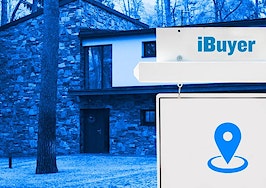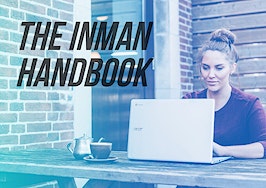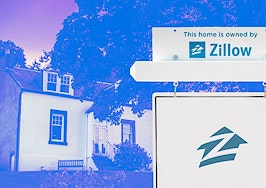This post has been republished with permission from Mike DelPrete.
Zillow announced that its iBuyer operation is paused for new business and will not sign any additional contracts to buy homes through the end of the year.
Unprecedented growth
Last quarter, the iBuyers purchased more houses than ever before. Preliminary market data — which is so high I have to make note of how unusual it is — shows another record-breaking quarter.
In fact, if true, it would represent absolutely stunning growth to a scale the iBuyers have talked about but have yet to achieve.

If the public record data is accurate, Zillow purchased more than twice the number of houses in Q3 compared to Q2 (which itself was double Q1). This is the type of growth that can stress a business to its breaking point.
Missing the signs
Aside from the massive human capital implications of scaling a business so quickly (real estate transactions are complex and people-dependent), the iBuyers can get into trouble if they pay above market for too many houses in a cooling market. This results in a growing inventory of over-priced houses that are difficult to sell.
Zeroing in on Phoenix offers a snapshot of the importance of reading and reacting to these changing market conditions. When Phoenix started to cool, Opendoor and Offerpad began to adjust by slowing down purchases. Zillow, however, did not.

As the market cooled between August and September, Opendoor and Offerpad purchased fewer houses, while Zillow purchased more.

Adjusting prices
The iBuyers also adjusted to changing market conditions by paying less for houses. The median purchase price in Phoenix peaked in August. Opendoor and Offerpad’s median purchase price also peaked in August before tracking the market and declining in September. But Zillow kept paying more and more.

Zillow continued to purchase homes well above the market median — a full $65,000 higher in September. It continued to pay top dollar to fuel acquisitions at a time when the market was cooling and other iBuyers were pumping the brakes.

Strategic implications
Growing pains. Off the rails. Ahead of your skis. Any of these phrases could apply to the situation at Zillow (or any number of other high-growth companies).
The iBuyers — Zillow included — experienced massive, transformational growth in 2021. And while Zillow stumbles, Opendoor appears to be firing on all cylinders and flexing its well-honed operational muscle as it reaches new highs.
The current problem seems to be unique to Zillow. The other iBuyers saw the signs and made strategic adjustments months in advance. Zillow either missed the signs, or decided to proceed despite them.
Which leads to the current situation: embarrassing, clearly not ideal, but also not the end of the world. A timely reminder that iBuying is an incredibly difficult business to scale, and when you move too fast, sometimes things break.
Mike DelPrete is a strategic adviser and global expert in real estate tech, including Zavvie, an iBuyer offer aggregator. Connect with him on LinkedIn.













